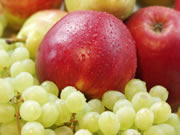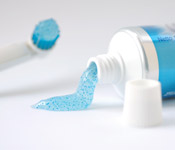I see so many questions online about how to heal a canker sore, also known as an aphthous ulcer, but not many that deal with preventing them from occurring in the first place. While there are many possible causes, ranging from physical trauma like biting your lip or inside cheek, food allergies, hormones and even a family connection, vitamin and nutrition deficiencies may also be a cause. The most frequently mentioned deficiencies are Vitamin B12, iron, and folic acid. Here are some supplement suggestions that may help boost your immune system and prevent the recurrence of mouth sores.
 Vitamin B12
Vitamin B12
Sometimes known by the chemical name cobalamin, Vitamin B12 is critical for the brain and nervous system as well as the production of red blood cells. It has been theorized that some people who experience frequent mouth sores have a B12 deficiency. In fact symptoms of insufficient B12 levels include mouth sores, along with fatigue, dizziness, memory loss, shortness of breath and other symptoms. You can get more B12 into your diet by eating red meat, liver and shellfish as well as dairy. Vegans and vegetarians may be deficient because their diets do not contain meat, milk, yogurt, and eggs.
Frankly, though, it’s hard to get enough B12 through diet only. There was a 2009 study done at Ben Gurion University in Israel that found a daily dose of 1000 mcg of the vitamin produced a significant reduction in recurring aphthous ulcers (RAS). About 74% of the patients in the study who received the daily dose experienced remission, while only 34% of the placebo group had their sores disappear. Easily found at the drugstore, vitamin B12 might be something to try if you experience frequent canker sores. In fact, your doctor can run a blood test to check your level.
Folic Acid
Also known as vitamin B9, folate and pteroylmonoglutamic acid, folic acid is critical for several bodily functions including DNA synthesis and repair and encouraging rapid cell division, especially in infants and during pregnancy. It is also important for producing healthy red blood cells. While folate deficiency is rare because the Western diet often includes foods fortified with folic acid (commonly in processed foods, especially bread and cereals), it can happen. Symptoms include diarrhea, nerve damage, anemia, mental confusion, peptic or mouth ulcers, and heart palpitations. You don’t have to eat processed foods to get folate, you can find it in green leafy vegetables, eggs, liver, and legumes. While extremely low levels of folic acid are less likely, if you are experiencing frequent mouth ulcers it would be wise to increase your intake of folic acid. The recommended daily dose is 1000mcg.
Iron
Most of the body’s iron is found in red blood cells called hemoglobin and in muscle cells called myoglobin. Hemoglobin is critical for transferring oxygen in your blood to our cells, while myoglobin stores, transports and releases oxygen.
An iron deficiency can lead to anemia, which is a low red blood cell count. It can be caused by not getting enough iron in your diet or from poor absorption or loss from intestinal bleeding. Women are more affected than men, and signs include fatigue, weakness and light-headedness, hair loss, depression, angina, constipation, and low and behold, mouth ulcers. There have been a number of studies that indicate some sufferers of frequent canker sores are low in iron, and after supplementation their canker sores disappeared. The recommended daily dose for men is just 8 mg/day, while for menstruating women the intake is 18 mg/day due to menstrual blood loss. You should check with your doctor before supplementing with iron because iron toxicity can occur if you take too much. A routine blood test can tell you if you are deficient. You can increase your iron intake naturally by eating iron-rich foods including leafy green vegetables, red meat, eggs, and iron-fortified foods.
Lysine
L-Lysine is an essential amino acid. It is a key building block for protein within the human body, as well as building muscle, calcium absorption, and the production of antibodies, enzymes and hormones. It can be found in red meaty, pork, lamb, poultry, eggs, cheese, soy and some fish, as well as lentils, azuki beans, kidney beans and chickpeas.
Some people are familiar with lysine because it has been known to help people suffering from cold sores (herpes simplex), which are viral in nature and NOT related to canker sores, which are related to the immune system. A deficiency in lysine may cause immunodeficiency. So, since frequent canker sores (RAS) is related to a problem with the immune system, some people find benefit in supplementing with lysine. The recommended dosage to try is 1000 to 2000 milligrams per day.





One thought on “Top Supplements to Help Canker Sore Sufferers”
Hi,yes I been suffer with cranker sores for more than a year and for the pas 3 Months the relapses been more frequent than it was, like every week,and a this point I don’t know what to do.I would like any commendation to this matter. Thank you.